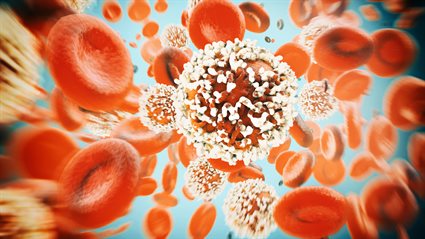Some cancers generate the seeds of their own destruction. Certain random mutations that accumulate in rapidly dividing tumor cells can spur the immune system to attack the cancer. Researchers are now learning that the extent of such mutations can predict whether a cancer will respond to new, powerful, immune-based therapies. A recently unveiled blood test for this so-called tumor mutational burden (TMB) could help make it a practical tool for guiding cancer treatment.
Cancer researchers can already gauge TMB by sequencing a panel of select genes in biopsied tissue, an approach that recently demonstrated strong predictive power in a large lung cancer trial. Some cancer physicians now use tissue TMB tests in select cases. But the less-invasive blood test, which analyzes tumor DNA shed into a person’s circulation, could reveal TMB in the many patients where tissue testing doesn’t work. “We’ll see [TMB] more and more,” says Naiyer Rizvi, an oncologist at Columbia University Medical Center. Still, TMB testing currently takes too long for routine clinical practice, he adds, and some in the cancer field question how useful it’ll ultimately prove.
Tests that can predict whether immunotherapy will work in a patient are badly needed, especially for so-called checkpoint inhibitors, which release a brake on immune cells and enable them to attack tumors. Since the Food and Drug Administration (FDA) in 2014 approved the first antibody drug targeting the “checkpoint” protein called PD-1, these drugs have transformed cancer care. University of California (UC), Los Angeles, research oncologist Antoni Ribas notes that in May, half the cancer patients admitted to his hospital had been on checkpoint inhibitors in the previous 6 months. “It’s a remarkable thing that we’re using these agents so much,” he says. In some patients the response is dramatic, but most still don’t benefit, and others are never prescribed the drugs. And except for the 4% of patients whose tumors have a specific DNA repair defect, doctors cannot reliably tell who will benefit.







